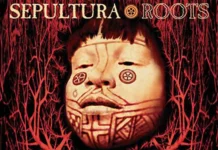The American poet Delmore Schwartz once wrote, “Time is the fire in which we burn.” Since the dawn of time, humans have been fascinated with the idea of turning the flow of time backward, freezing the ceaseless pounding of time, if only for a moment, or sidestepping time altogether. These ideas have been the recurring trope in children’s fairy tales, horror stories, and science fiction. With all the sleeping beauties and stasis fields put aside, there are two rather prominent but down-to-earth ways to achieve dominance over time: illegal drugs and music. Of course, neither of these methods really distort time, in the scientific meaning of the term, but rather alter our perception of time so as to lose track of it completely or to get utterly confused with it. Some chemicals make time appear as though having been sped up, while others slow time down to the point of almost grinding to a halt. At its best, music has exactly the same effect but without the adverse side effects. Furthermore, music has that incredible ability to bridge the present moment with the past as though by a wormhole linking disparate points in spacetime. Let me elaborate. You put on a record, say, almost 30 years after you first heard it. It is a record that meant the world to you during those tumultuous and hormonally unstable adolescent years. Even after all those years, you can instantly recall how you felt listening to it back in the day. It feels almost as though rewinding all those years: you feel like you’re 18 again, albeit with all the weight of the years on your shoulders. Something has slightly changed: with the life experience accumulated over the years, the lyrics speak to you louder, more poignantly, with the near-infinite mass of the years in-between. The music speaks to your soul with an unprecedented power, especially if the frontman of the band in question has passed away since the release of this particular piece of music, let alone if the album has an overarching theme of being ensnared in the unforgiving black hole of heroin addiction. Listening to the 1992 album, “Dirt,” by ALICE IN CHAINS still makes an impact of nothing short of chilling proportions, as it did almost 30 years ago, but for completely different reasons now.

This Seattle bunch released sophomore studio album “Dirt” on September 29th, 1992, via Columbia Records and it really hit a collective nerve. The grunge revolution had already outgrown the Seattle rock dives and was sweeping across the globe like a flannel-clad tidal wave of guitar fuzz. ALICE IN CHAIN‘s debut album, “Facelift,” had been released in 1990 and it had served as a kind of precursor for the movement, by setting the somewhat moody trademark tone for the new style of music. At the time of its release, the album was touted as metal but it was the type of metal that no one had really heard before. By no means did it fit the metal norm of the era: it was neither a thrash extravaganza nor a hair-sprayed glam metal outing. The debut was layered thick with the sweet, yet subtly paranoid scent of a cannabis high, as though presenting an updated version of BLACK SABBATH, whereas the follow-up outing reeked with the desperation and hopelessness of someone’s slow descent into hell through the use of heroin. “Dirt” came off instantly as a brutally honest account of personal anguish and turmoil. As we all were to realize later, the conceptual motif on the album had not sprung forth by way of putting on a show. When Layne Staley starts singing about his personal demons, his vocal delivery is instantly endowed with such authenticity, such raw emotion, that it sends a river of shivers down your spinal cord. Yes, “Dirt” is an album about hard drugs. It’s a long, hard peek into the bottomless pit of addiction and – like one of the wise men in Gotham once said – when you gaze into the abyss, you’d better beware because the abyss also gazes into you. Some of the songs on the album could make you feel a bit uneasy already in 1992 and after Staley passed away in 1998, these songs started to sound utterly sad and desolate – and yet, strangely comforting. I mean, if you ever feel so hopelessly downbeat that there seems to be no light at the end of the tunnel, the vortex of darkness that unfolds upon listening to this album has a strange way of putting things into perspective. Despite all the wallowing in the drug-induced gloom, there is a faint glimmer of optimism on the album too.
The album spawned five singles. “Would?” is a tribute to the deceased MOTHER LOVE BONE frontman, Andrew Wood, who had died of a drug overdose in 1990. The song is driven by one of the most iconic basslines ever invented – and, in retrospect, when Staley sings the line, “Have I run too far to get home?” it simply churns the blood. “Them Bones” is a sarcastic take on mortality – one that has been layered with morbid connotations in the aftermath of Staley‘s death. “Down In A Hole” is not explicitly about drugs. The song was actually written by the guitarist, Jerry Cantrell, about his long-time girlfriend and the repercussions that life on the road had on his relationship. The lyrics could easily be interpreted also as though depicting a doomed relationship with, say, heroin. “Angry Chair” is another glimpse into the mind of a heroin addict. The lyrics are chilling, to say the very least, implicating a distinct sense of existing out of time, somehow, with the feeling obviously having been induced by the drug. “Rooster” is one of those lighter moments on the album – if you can think of a war-themed song as being “light” in any way. The song was written by Cantrell about his father, who had served in the Vietnam War but, despite all the war imagery, the lyrics are charged with resilience and perseverance: “Yeah, they come to snuff the rooster / […] you know he ain’t gonna die.”
Even though not every song on the album is explicitly about drugs, the overall sentiment is really dark – to the point of being overwhelming – unsettling even – at times. The songcraft is so coherent that practically every song on the album would have worked marvelously as a single. Staley‘s brutal honesty about his predicament in the song lyrics almost feels as though reading a journal of his innermost dark secrets. It creates an intimacy of the sort that you rarely come across on a metal album – or any album representing any genre whatsoever. “Dirt” was by no means the first album that proved the clichéd dissertation to be true, that timeless masterpieces are often created at the artists’ darkest hour. However, upon its release, it was an album that was ingrained with an unprecedented sense of timelessness of a bit more unsettling kind. It still feels as though having been condensed from the darkest matter in our collective inner universe. It is like a stroll through the darkest forests of our collective soul, after which even the most dismal grind of our everyday life feels like a walk in the park.
Along with the few other seminal grunge albums, such as “Nevermind” by NIRVANA, “Ten” by PEARL JAM, and “Superunknown” by SOUNDGARDEN, this second studio album by ALICE IN CHAINS has stood the test of time as one of the most essential music releases from the 1990s. It is one of those albums that everyone should definitely check out. “Dirt” resonated with a somewhat chilling aura already at the time of its release and now, almost 30 years later, the chill seems to have become a tad more biting as Staley‘s howling voice echoes from beyond the grave, asserting that it takes a hell of a lot of guts not to give up.
Written by Jani Lehtinen
Tracklist
- Them Bones
- Dam That River
- Rain When I Die
- Sickman
- Rooster
- Junkhead
- Dirt
- God Smack
- Iron Man
- Hate to Feel
- Angry Chair
- Down In A Hole
- Would?
Lineup
Layne Staley – vocals, rhythm guitars
Jerry Cantrell – guitars, backing vocals
Mike Starr – bass
Sean Kinney – drums
Label
Columbia





